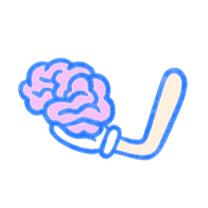I work in the field of mental health where I serve clients who struggle with severe mental illness. What I continue to find more and more is that for many people, including my clients, the smartphone is the central communications, entertainment, and management hub of life. We pay bills, we keep up with our friends, and we catch the latest cat video. We can also empower ourselves with self-help and information instantaneously.
Those of us who work in the world of psychotherapy and counseling can make use of this cultural trend to serve our clients quickly, personally, and with a speed that was impossible until very recently. Clients are more informed, mobile, and equipped with technology than ever before, and there’s a huge opportunity to make the most of it.
As providers, we also have tools that can be useful for on the job needs, industry references or simply managing our careers. The following are nine apps that I’ve found useful both for myself and for my clients.
Resources for Clients
TED Talks
Anyone working in the field of mental health should know about the TED series which involves scientists, artists, and other experts sharing their knowledge in what are generally brief, informative, and entertaining videos about their area of expertise.
Much of the TED series is about personal stories of survival on things such as schizophrenia, chronic depression, and other mental or physical struggles in life. Cecilia McGough shared her story (below) of learning that she had schizophrenia, detailing the day-to-day symptoms and all that she has endured. Jake Tyler explained his story of dealing with depression by embarking on a journey to manage his mental health in previously unexplored ways and how it changed his life.
The speakers are passionate and inspiring, and there is something out there for just about everyone, especially those who have or are currently facing transitional issues and mental health diagnoses. The lectures are easy to find and search by category on www.TED.com, and many are also available on YouTube.
Psych Meds
One of the most common concerns of clients is learning more about their medications, including side effects, efficacy, and cost. One of the main reasons clients end up in crisis is that they misuse or misunderstand their medication. The Psych Meds app is a comprehensive guide to psychiatric medications that is just as useful for behavioral health professionals as it is for clients in answering common medication questions.
Suicide Safe
Crisis can come at any time. Those who struggle with ideas of self-harm must be able to access services and support instantly. Suicide Safe is a publication of SAMHSA, the Substance Abuse and Mental Health Services Administration. It provides a means of quick, effective assessment and communication to effectively connect those in need with local available resources.
Resources for Self-Care
Woebot: Your Self-Care Expert
The award-winning app Woebot presents a character that helps people understand the distortions in their thinking. Relying on the principles of cognitive behavioral therapy, the app is a 24/7 resource in helping to understand our patterns of thought better. Woebot is not therapy, but it is an excellent tool to help clients process almost any issue in life, such as grief, anxiety, or relationship issues in a friendly, mature way.
7 Cups: Anxiety & Stress Chat
For many clients, anxiety and stress are things that require a great deal of feedback. Therapists cannot always be available to provide in-the-moment help for their clients who sometimes just need a quick, grounding conversation. Though it is not a substitute for therapy, the 7 Cups: Anxiety & Stress Chat app does provide emotional support on demand through chatting with volunteers trained in active listening.
Sober Time – Sober Day Counter & Clean Time Clock
One of the motivators for many who struggle with substance abuse issues is keeping track of their sobriety. For many in recovery, ‘clean time’ is a matter of great personal pride and dedication. The Sober Time: Sobriety Counter app, available on both iOS and Android, is a quick way to maintain this key piece of information, along with providing motivational messages and a means of tracking personal goals and milestones.
References and Utilities for Therapists
DSM-5 Diagnostic Criteria
As anyone who works in the field knows, the Diagnostic and Statistical Manual of Mental Disorders can be a cumbersome thing to lug around. One solution is the DSM-5 Diagnostic Criteria app, the official publication which allows behavioral health professionals access to the essential diagnostic material with just a few clicks. The app allows annotations, complete offline access, and a bank of collateral material such as commentary and videos.
Psychology Dictionary
The jargon and clinical language of psychology can be confusing, particularly for new therapists. The Psychology Dictionary is a free, searchable, and bookmarkable mental health dictionary, complete with references and illustrations.
My CEU Wallet
Most behavioral health professionals are engaged in some kind of ongoing training in order to keep their licenses up to date. Keeping this material organized can be a challenge. My CEU Wallet allows the user to store relevant documents to the cloud, quickly count up how many yours you have or need, and even print stored documents if necessary through a local printer.
Technology can be a path to greater efficiency and knowledge for therapists, but more importantly, it can be a means to self-efficacy and empowerment for those we serve.


